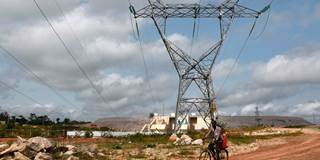HARARE – A pesar del impresionante desarrollo económico de los últimos años, África sigue muy rezagada en materia de energía: casi dos de cada tres ciudadanos del continente carecen de acceso a la electricidad. Subsanar este faltante es una meta importante, pero el tendido de redes es un proceso costoso y lento, y los generadores de electricidad independientes de la red no siempre bastan para cubrir las necesidades de energía de los usuarios. Felizmente, hay una tercera posibilidad que puede ayudar a resolver el problema: las minirredes.
Las minirredes son, básicamente, redes localizadas que suministran electricidad a varios usuarios (residenciales o comerciales), y que pueden o no estar conectadas a la red general. Como muestra un nuevo informe del Africa Progress Panel (del que uno de los autores es miembro), y reafirma otro informe del Rocky Mountain Institute, las minirredes pueden ser una parte importante de la solución a los problemas energéticos de África.
Las minirredes tienen una gran ventaja competitiva en relación con el tendido de redes en áreas rurales y alejadas, porque su implementación es más rápida y menos costosa. Como demandan menos inversión de capital que la ampliación de redes, son más fáciles de financiar y permiten electrificar en menos tiempo comunidades que normalmente deberían esperar años a que llegue la red general.



HARARE – A pesar del impresionante desarrollo económico de los últimos años, África sigue muy rezagada en materia de energía: casi dos de cada tres ciudadanos del continente carecen de acceso a la electricidad. Subsanar este faltante es una meta importante, pero el tendido de redes es un proceso costoso y lento, y los generadores de electricidad independientes de la red no siempre bastan para cubrir las necesidades de energía de los usuarios. Felizmente, hay una tercera posibilidad que puede ayudar a resolver el problema: las minirredes.
Las minirredes son, básicamente, redes localizadas que suministran electricidad a varios usuarios (residenciales o comerciales), y que pueden o no estar conectadas a la red general. Como muestra un nuevo informe del Africa Progress Panel (del que uno de los autores es miembro), y reafirma otro informe del Rocky Mountain Institute, las minirredes pueden ser una parte importante de la solución a los problemas energéticos de África.
Las minirredes tienen una gran ventaja competitiva en relación con el tendido de redes en áreas rurales y alejadas, porque su implementación es más rápida y menos costosa. Como demandan menos inversión de capital que la ampliación de redes, son más fáciles de financiar y permiten electrificar en menos tiempo comunidades que normalmente deberían esperar años a que llegue la red general.